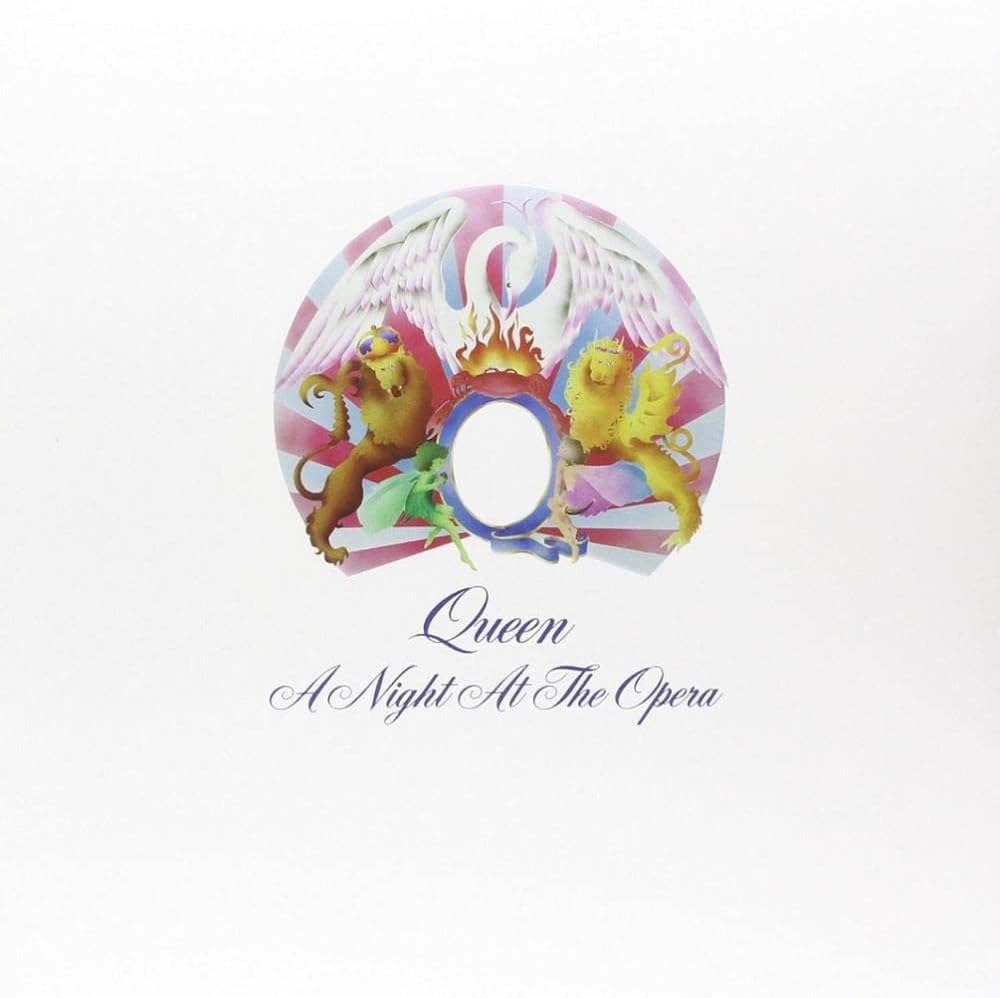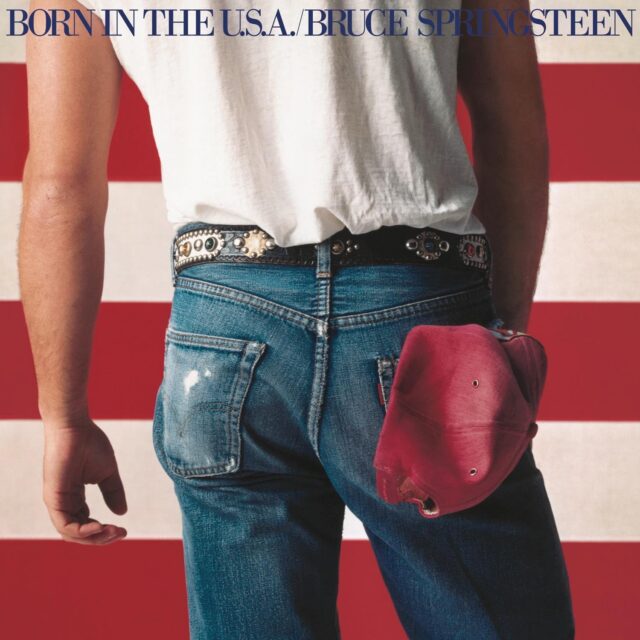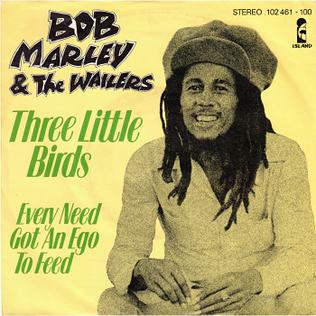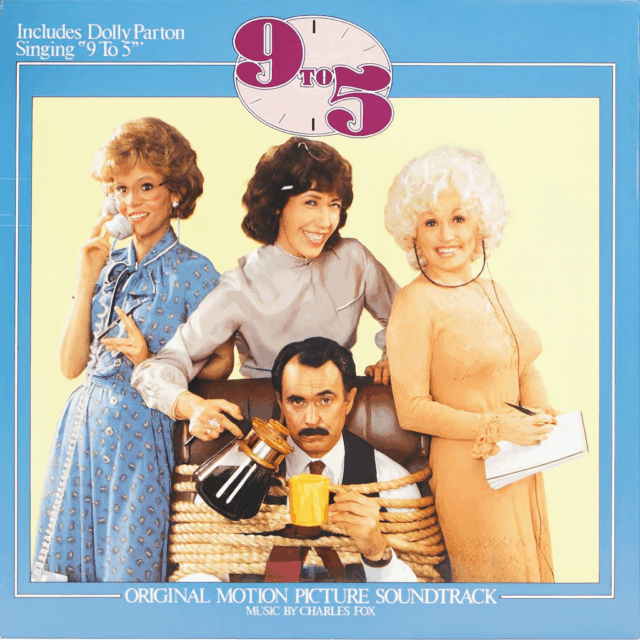“There is a new one around the corner and we will bring it to you first. In fact, we have their new single. It’s not even been pressed onto wax yet; it’s on tape. And it’s waiting for me to press the button,” said Kenny Everett on his Capital Radio show in London in October 1975. “Yes, friends. Freddie pressed it into my hot little hand this very last nightness, and he said, ‘Go forth and be fab, Ken.’ So ladies and gentlemen, for the very first time anywhere in this universe of ours, we present, at this moment of time, the new Queen single.”
Everett first aired “Bohemian Rhapsody” on Capital Radio during his weekend lunchtime show over the last weekend in October 1975 (Saturday, October 25, and Sunday, October 26), enthusiastically playing it fourteen times in its entirety. By Monday morning, record stores were inundated with requests, which helped build much-needed momentum before its release.
“We were advised that ‘Bohemian Rhapsody’ wouldn’t work as a single because it was too long. The information we had was that no one would play it, no radio station would play it,” said Brian May, guitarist for Queen. “Even our manager, John Reid—and John Reid was very enthusiastic; it was all new, we’d only just signed with him. He was Elton’s manager at the time, and we’d just signed up with him, and he really did a rescue job on us because we were in debt and in a terrible situation with our former management. He went in and said, ‘Okay, you make the best album you’ve ever made and I will sort out all the business!’ So he was very enthusiastic, but even he said, ‘This is a problem. We have a problem because this single is too long.'”
Reid did ask Elton John, who was the biggest pop star in the world at the time, to listen and give his feedback.”We listened to the song and I shook my head, incredulous,” John stated. “‘You’re not actually going to release that, are you?’ For one thing, it’s about three hours long. For another, it’s the campest thing I’ve ever heard in my life. And the title’s absolutely ridiculous as well.”
“The situation only really changed when we had our launch party. It was attended by a DJ who was very popular in this country at the time, called Kenny Everett. He was a DJ for Capital Radio. He basically stole a copy of the still-unfinished master tape and immediately played it on his radio station. I think he played “Bohemian Rhapsody” four times in succession, don’t quote me on the number of times, but he went in there and I think he sort of locked his door and these producers were upset with him, but he had this hugely confident feeling about “Bohemian Rhapsody” and he just kept playing it and people loved it. He got a fantastic response.”
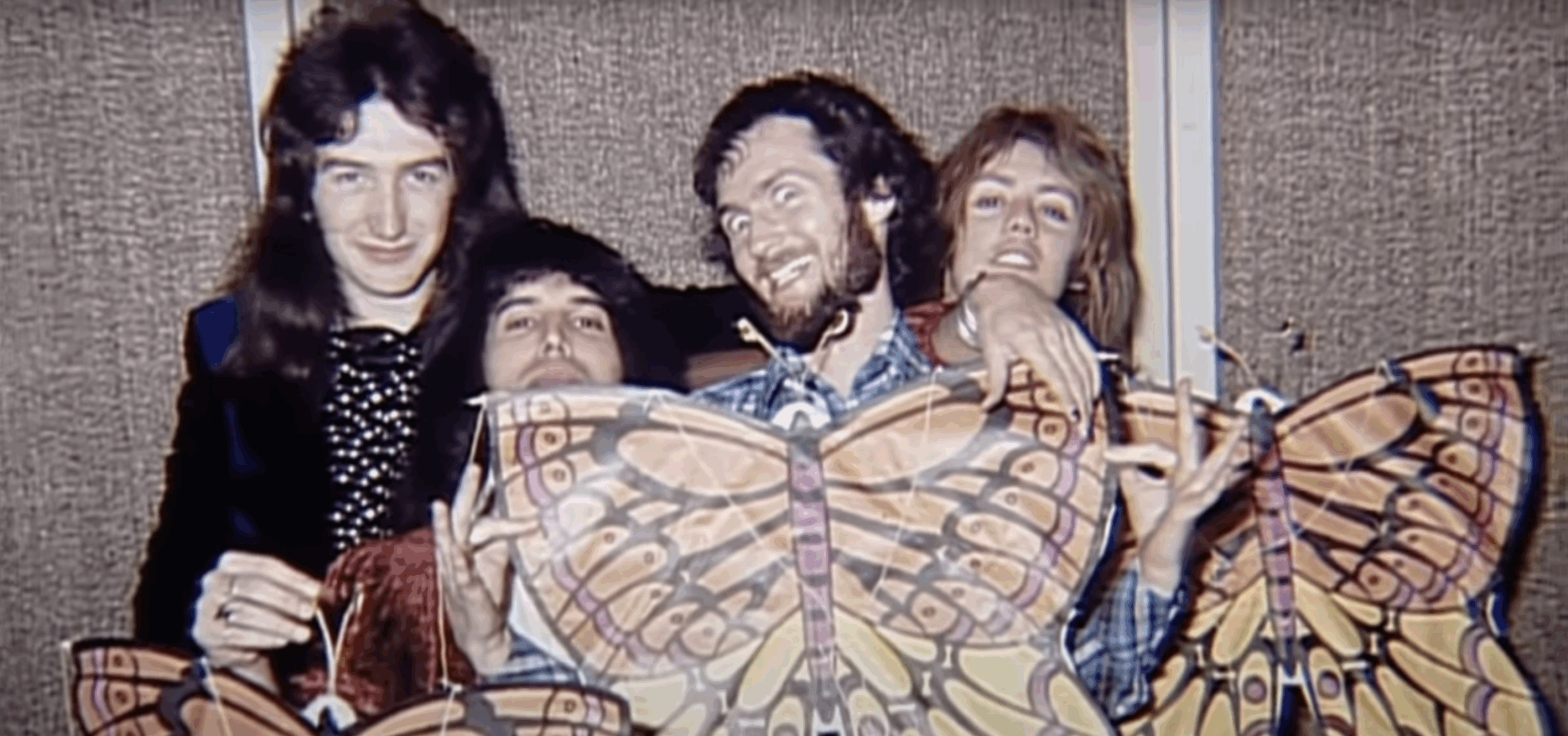
“It was really Freddie’s baby from the beginning,” said guitarist Brian May. “He came in and knew exactly what he wanted. The backing track was done with just piano, bass and drums, with a few spaces for other things to go in … Freddie sang a guide vocal at the time, but he had all his harmonies written out, and it was really just a question of doing it.”
“I remember Freddie coming in with loads of bits of paper from his dad’s work, like Post-it notes, and pounding on the piano,” recalled May. “He played the piano like most people play the drums. And this song he had was full of gaps where he explained that something operatic would happen here and so on. He’d worked out the harmonies in his head.”
“Bohemian Rhapsody” was recorded over a three-week period, across six studios, beginning on August 24, 1975, at Rockfield Studios in Monmouth, Wales.
“We ran the tape through so many times it kept wearing out,” May said. “Once we held the tape up to the light and we could see straight through it, the music had practically vanished. Every time Fred decided to add a few more ‘Galileo’s we lost something, too.”
“We were adamant that it could be a hit in its entirety. We have been forced to make compromises, but cutting up a song will never be one of them,” Mercury recalled.
“We just felt that ‘Bohemian Rhapsody’ was the song that would sort of say what we are doing at the given time. So we sort of chose that. Obviously we came across certain barriers like it being six minutes long or whatever,” said Mercury. “We just thought there is no point. You either hear it in its entirety or just pick another song. I think we were so confident with that certain number. I mean it is a risk, I know, and we either thought it was going to be an enormous flop or a huge success.”
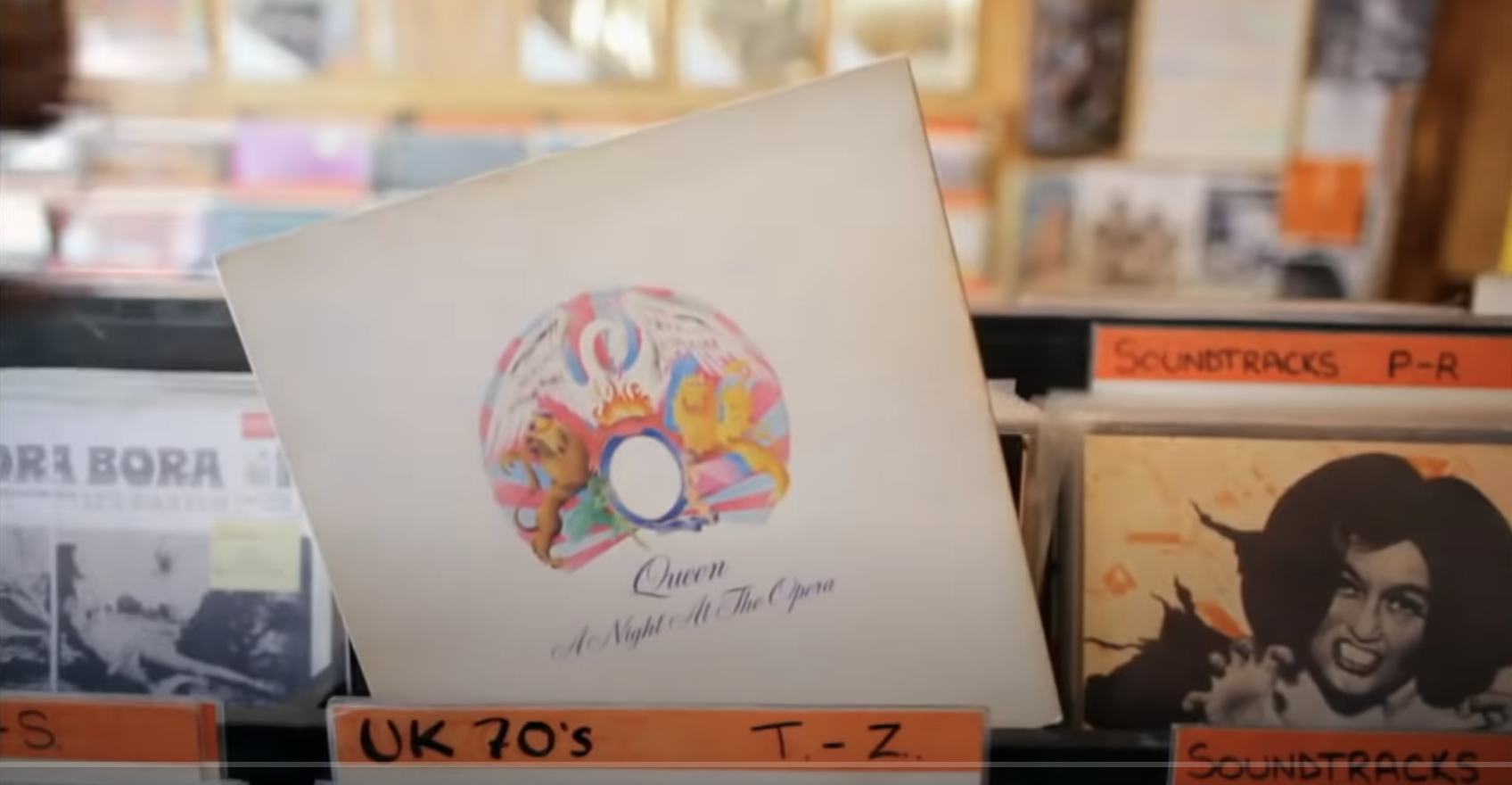
Record label EMI released “Bohemian Rhapsody” as a single in its full-length on Friday, October 31, 1975, followed by the album A Night at the Opera on November 21, 1975, in the United Kingdom, and December 2, 1975 in the United States.
This was the band’s fourth studio album and considered the one that catapulted them to international fame.
“Bohemian Rhapsody” topped the UK Singles Chart for nine weeks beginning in late November 1975. After Freddie Mercury’s death on November 24, 1991, the song returned to number one for another five weeks.
In the United States, “Bohemian Rhapsody” rose to number 9 on the Billboard Hot 100 chart in 1976. Then, in 1992, it experienced a major return when it was featured in the film Wayne’s World, reaching the number 2 spot.
“Bohemian Rhapsody” is on Rolling Stone’s “500 Greatest Songs of All Time” and has been inducted into the Grammy Hall of Fame and the National Recording Registry by the Library of Congress.
Lyrically: Bohemian Rhapsody by Queen
“Bohemian Rhapsody” was three separate songs weaved into one, written by Mercury primarily at his Kensington home. “I’d always wanted to do something operatic,” said Mercury. “Something with a mood-setter at the start, going from a rock type of thing… and then [returning] to the theme.”
One day in 1975, record producer Roy Thomas Baker was at Freddie Mercury’s Kensington apartment in London, England when he first heard the opening of what would become “Bohemian Rhapsody.” “He played the beginning bit on the piano, then stopped and said, ‘This is where the opera section comes in.’ Then we went out to eat dinner.”
“I thought it was going to be a hit. We didn’t know it was going to be quite that big. I didn’t realize it was still going to be talked about 30 years later,” said Baker, who produced the song.
“I have a perfectly clear idea of what was in Freddie’s mind,” May said. “But it was unwritten law among us in those days that the real core of a song lyric was a private matter for the composer, whoever that might be. So I still respect that.”
“Bohemian Rhapsody” is 5 minutes and 55 seconds in length. During that era, apart from songs such as “Hey Jude,” “Like A Rolling Stone,” “Stairway to Heaven,” and “American Pie,” record labels and radio stations often preferred shorter tracks, between three to four minutes, because they were more radio-friendly and fit better into standard programming to fit in advertising.
Queen’s “Bohemian Rhapsody” was unusual not only for its length but also for its structure, blending rock, opera, and ballad sections. “There was so much hunger,” said Mercury. “We just had so much that we wanted to bring out… so we had all kinds of songs and ‘Bohemian Rhapsody’ was basically like three songs that I wanted to put out and I just put the three together.”
The Cambridge Dictionary defines the word “bohemian” as “a person who is interested in artistic and unusual things.” The word “rhapsody” means “a piece of music written without a formal structure that expresses powerful feelings and emotional excitement.” In ancient Greece, “rhapsody” referred to an epic poem.
The band has been tight-lipped about the lyrical meaning behind the song; however, Queen guitarist Brian May stated, “I have a perfectly clear idea of what was in Freddie’s mind… But it was an unwritten law among us in those days that the real core of a song lyric was a private matter for the composer, whoever that might be. So I still respect that.’
“I’m very happy to tell you that nobody knows what it means, and Freddie never explained it to us,” said May. “That was kind of an unwritten rule with us anyway, at those points, we never explained our songs to each other. It was an unwritten thing that we… and partly because you don’t like explaining your art and partly because it was sort of taboo.”
“‘Bohemian Rhapsody’ was Freddie’s confessional,” Hutton told Mercury biographer Lesley-Ann Jones. “It was about how different his life could have been, and how much happier he might have been, had he just been able to be himself, the whole of his life.”
“It’s one of those songs which has such a fantasy feel about it. I think people should just listen to it, think about it, and then decide for themselves what it means to them,” said Mercury.
Is this the real life? Is this just fantasy?
Caught in a landslide, no escape from reality
Open your eyes, look up to the skies and see
The opening trio of lyrics sets the tone for the song and is songwriting mastery with Mercury penning, “Is this the real life? Is this just fantasy?” immediately questioning the current reality. “Caught in a landslide, no escape from reality” conveys an emotional connection with a sense of losing control. This is followed by a hope and belief with “Open your eyes, look up to the skies and see.”
I’m just a poor boy, I need no sympathy
Because I’m easy come, easy go
Little high, little low
Any way the wind blows doesn’t really matter to me, to me
If “Bohemian Rhapsody” is a poem on self-exploration, the line, “I’m just a poor boy, I need no sympathy,” suggests that Mercury is aware of his struggles but doesn’t seek pity; instead, he embraces his decisions.
The lyrics, “Little high, little low, any way the wind blows doesn’t really matter to me, to me,” hint at a feeling of detachment from whatever happens. Whether things are “a little high” (going well) or “a little low” (not going well), life is beyond their control, and will go the direction “any way the wind blows.”
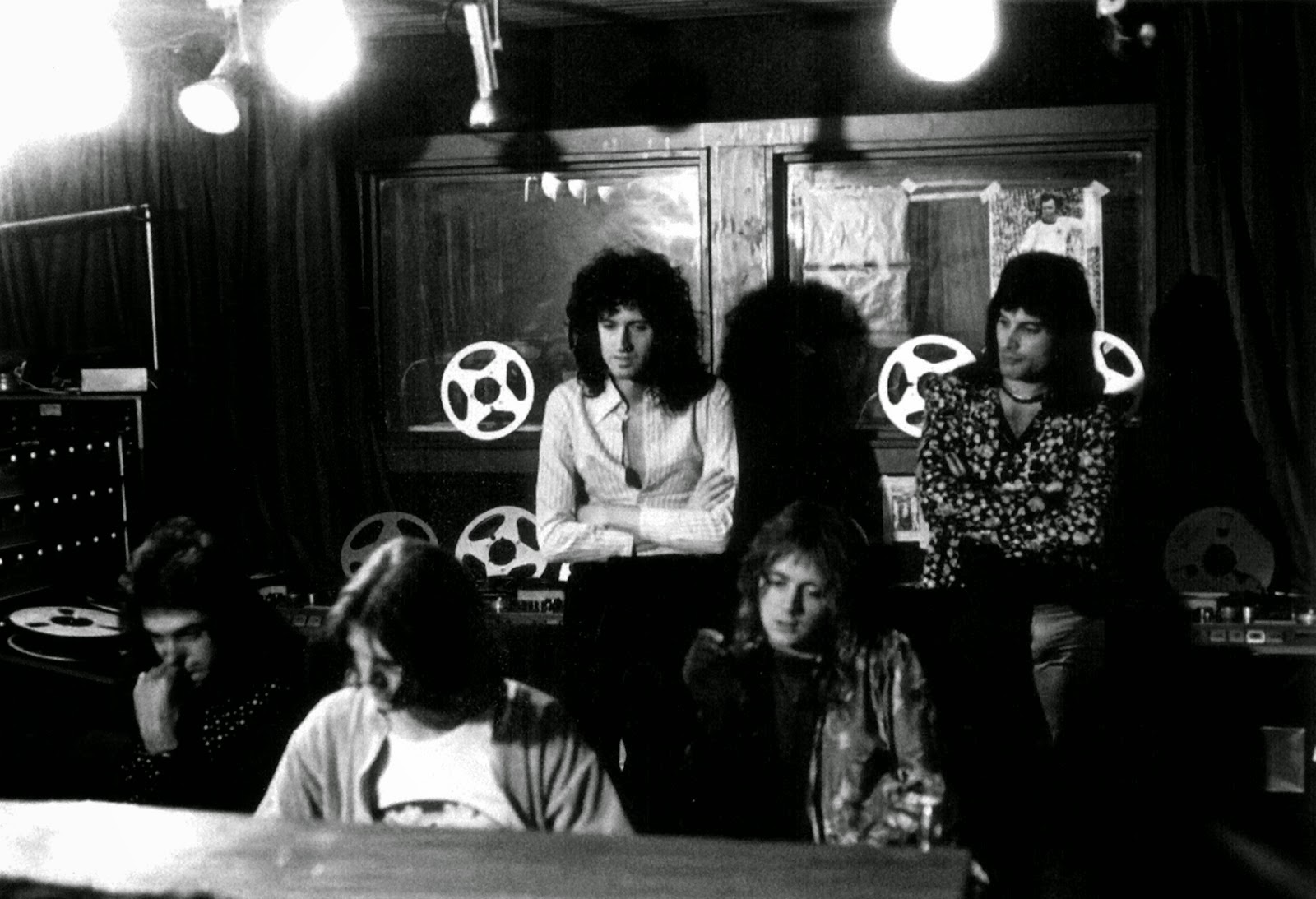
Mama, just killed a man
Put a gun against his head, pulled my trigger, now he’s dead
Mama, life had just begun
But now I’ve gone and thrown it all away
Mama, ooh, didn’t mean to make you cry
If I’m not back again this time tomorrow
Carry on, carry on as if nothing really matters
Sir Tim Rice, a lyricist who worked with Mercury during his solo career, stated, “I’ve spoken to Roger Taylor [the band’s drummer] about it. There is a very clear message in it. This is Freddie admitting that he is gay. In the line ‘Mama, I just killed a man’ he’s killed the old Freddie, his former image. With ‘Put a gun against his head, pulled my trigger, now he’s dead’ he’s dead, the straight person he was originally. He’s destroyed the man he was trying to be, and now this is him, trying to live with the new Freddie. ‘I see a little silhouetto of a man”—that’s him, still being haunted by what he’s done, and what he is. Every time I hear the song I think of him trying to shake off one Freddie and embracing another – even all these years.”
The “Mama” mentioned in the line “Mama, just killed a man / Put a gun against his head, pulled my trigger, now he’s dead” could be interpreted as a symbol rather than a literal character. One interpretation could be that Mercury is killing off his old self and embracing this reality as his true authentic self. “Mama” could also represent Mercury’s conscience, a person of great significance in his life, such as his mother, or possibly Mary Austin, his longtime friend and former girlfriend.
The lyrics “Mama, life had just begun / But now I’ve gone and thrown it all away” speak to a deep sense of regret and the realization of how one decision can unravel everything just as life was flourishing.
There is also a powerful sense of remorse and emotional weight in these lyrics, especially when he says, “Mama, ooh, didn’t mean to make you cry.” He’s apologizing, knowing he’s hurt someone important.
The lyrics “If I’m not back again this time tomorrow / Carry on, carry on as if nothing really matters” reflect a resignation to fate while embarking on this new life, prepared for wherever the wind blows.
Too late, my time has come
Sends shivers down my spine, body’s aching all the time
Goodbye, everybody, I’ve got to go
Gotta leave you all behind and face the truth
Mama, ooh (any way the wind blows)
I don’t wanna die
I sometimes wish I’d never been born at all
The tremble in the lyrics comes out when he sings about time running out, his body aching and shivering. It’s as if he’s reached a point of no return, saying goodbye to everyone he cares about as he embraces a new truth. Some will leave, some will stay.
The deepest part of the song is “I don’t wanna die / I sometimes wish I’d never been born at all,” revealing lingering indecision.
I see a little silhouetto of a man
Scaramouche, Scaramouche, will you do the Fandango?
Thunderbolt and lightning, very, very frightening me
(Galileo) Galileo, (Galileo) Galileo, Galileo Figaro, magnifico
But I’m just a poor boy, nobody loves me
He’s just a poor boy from a poor family
Spare him his life from this monstrosity
The opera section of “Bohemian Rhapsody” now paints a vivid scene filled with theatrical imagery, which the movie Wayne’s World perfectly captured. In the opening scene, Wayne, Garth, and their buds are driving in “The Mirthmobile,” a baby blue 1976 AMC Pacer complete with flames painted on the sides, head banging to the song, each singing “Galileo” while driving through downtown Aurora, Illinois.
Queen experienced a massive cultural revival when the movie was released on February 14, 1992 as it took a 1970s classic and turned it into a 1990s hit. This scene also redefined how people experienced the song, making it a fun, communal experience rather than a complex, operatic rock piece.
Scaramouche is a character from the Italian commedia dell’arte, a type of theater that was all the rage from the 16th to the 18th centuries. Fandango is a lively Spanish dance, and this inclusion continues the playful, theatrical experience.
The references to a “thunderbolt and lightning” that is “very, very frightening” show unexpected shock in this new life.
Galileo refers to the Italian astronomer, physicist, and engineer Galileo Galilei, known as the “father of modern observational astronomy” and often associated with the pursuit of truth and enlightenment. It is suggested that Mercury included Galileo in the song to honour Brian May, who had a strong connection to astronomy and later earned a Ph.D. in astrophysics from Imperial College London in 2007.
The lyrics “Galileo Figaro Magnifico” could be Mercury’s theatrical invention, combining “Galileo” (the astronomer’s name), “Figaro” (from Mozart’s opera “The Marriage of Figaro”), and “Magnifico” (Italian for “magnificent”).
“Freddie kept coming in with more ‘Galileos’ and we kept on adding to the opera section,” said Baker who produced the song.
Mercury then captures a sense of vulnerability and isolation with “I’m just a poor boy, nobody loves me.”
Easy come, easy go, will you let me go?
No, we will not let you go (let him go)
We will not let you go (let him go)
We will not let you go (let me go)
Will not let you go (let me go)
Will not let you go (never, never, never, never let me go)
No, no, no, no, no, no, no
The repeated lyrics “will you let me go?” and “we will not let you go” could symbolize the tension between wanting to embrace a new identity and feelings of being held back by the past, suggesting the song deals with Mercury’s coming to terms with his sexual identity.
Oh, mamma mia, mamma mia
Mamma mia, let me go
Beelzebub has a devil put aside for me, for me, for me
The repeated “mamma mia, let me go” suggests a plea for freedom, while “Beelzebub has a devil put aside for me” suggests that Satan (Beelzebub being another name for Satan) has designated a specific demon for him, possibly for the punishment of his new identity.
Mercury gave a bit of insight into the use of Beelzebub, stating, “I mean, uh, doesn’t necessarily mean I’m, I study demonology and things. I just love the the word Beelzebub, great word, isn’t it?”
So you think you can stone me and spit in my eye?
So you think you can love me and leave me to die?
Oh, baby, can’t do this to me, baby
Just gotta get out, just gotta get right outta here
These lyrics bring a new formed confidence and determination to break free from negativity and the past, making a statement about self-empowerment and the firm decision to move in this new direction.
“Freddie was a very complex person; flippant and funny on the surface, but he concealed insecurities and problems in squaring up his life with his childhood,” said May. “He never explained the lyrics, but I think he put a lot of himself into that song.”
Ooh
Ooh, yeah, ooh, yeah
Nothing really matters, anyone can see
Nothing really matters
Nothing really matters to me
The closing lyrics of “Bohemian Rhapsody” bring a calming sense of acceptance. The repetition of “nothing really matters” suggests that Mercury has come to terms with his life choices and identity, regardless of the opinions of others. It concludes the song’s intense emotional journey by moving from questioning reality to a state of peace within reality.
Carry on, carry on
On Saturday, July 13, 1985, at 6:41 pm BST at Wembley Stadium in London, Queen took the stage for their 21-minute set during Live Aid, opening with a shortened version of “Bohemian Rhapsody.” Performed before an audience of 72,000 and an estimated 1.9 billion viewers tuning in worldwide, this moment is widely regarded as one of the greatest live rock shows in history.
In 2018, Rami Malek played the role of Freddie Mercury in the biographical film Bohemian Rhapsody. The film tells the story of Mercury’s life and Queen’s rise to fame, culminating in their Live Aid performance. Malek earned several major awards for his portrayal, including the Academy Award for Best Actor.
Bohemian Rhapsody stands as a monumental testament to Freddie Mercury’s songwriting ability and artistry, achieving record-breaking sales, cultural significance, and lasting influence around the world.
I’m into basically writing songs about what I feel about and basically what I feel very strongly about is love and emotion,” said Mercury. “As far as I’m concerned, I think I hope people believe in the fact that I do go through torture and pain in terms of love and whatever and that’s what all I want to write about.

